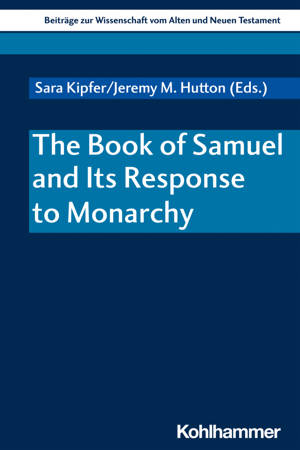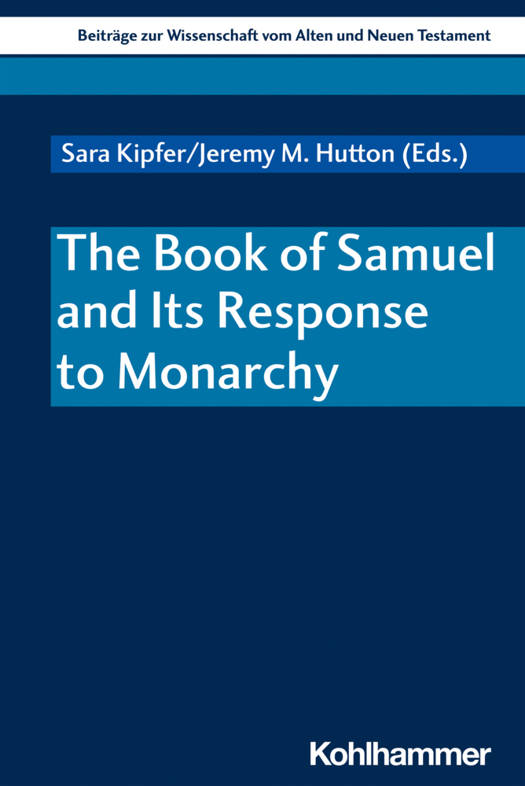
Bedankt voor het vertrouwen het afgelopen jaar! Om jou te bedanken bieden we GRATIS verzending (in België) aan op alles gedurende de hele maand januari.
- Afhalen na 1 uur in een winkel met voorraad
- In januari gratis thuislevering in België
- Ruim aanbod met 7 miljoen producten
Bedankt voor het vertrouwen het afgelopen jaar! Om jou te bedanken bieden we GRATIS verzending (in België) aan op alles gedurende de hele maand januari.
- Afhalen na 1 uur in een winkel met voorraad
- In januari gratis thuislevering in België
- Ruim aanbod met 7 miljoen producten
Zoeken
The Book of Samuel and Its Response to Monarchy
€ 167,95
+ 335 punten
Uitvoering
Omschrijving
Power and powerlessness comprise one of the key topics of the book of Samuel. This theme encompasses tribal contentions, power differentials between religious power (prophets, priests) and kings, fathers and sons, men and women. This volume assembles articles exhibiting a variety of methods and approaches, all of which explore Israel's search for political identity and Samuel's critique of monarchy, the book's constructions of power, and the editors' and early audiences' postmonarchic reflections. Historical and social-scientific approaches to the book of Samuel find ancient Near Eastern parallels for the political organization of Israel and describe the social conditions produced under authoritarian regimes. Redactional approaches examine the diachronic development of Samuel's varying perceptions of monarchy, from that institution's inception through its entrenchment in Israelite and Judahite society, until it underwent a sudden, cataclysmic failure. Literary and theological approaches advocate for contemporary reconsideration and application of the book's more noble principles. Contributions focus on these diverse political dimensions of the book, reflecting on the literary shape of Samuel and its response to monarchy.
Specificaties
Betrokkenen
- Uitgeverij:
Inhoud
- Aantal bladzijden:
- 344
- Taal:
- Engels
- Reeks:
- Reeksnummer:
- nr. 28
Eigenschappen
- Productcode (EAN):
- 9783170370401
- Verschijningsdatum:
- 27/01/2021
- Uitvoering:
- Paperback
- Formaat:
- Trade paperback (VS)
- Afmetingen:
- 155 mm x 231 mm
- Gewicht:
- 430 g

Alleen bij Standaard Boekhandel
+ 335 punten op je klantenkaart van Standaard Boekhandel
Beoordelingen
We publiceren alleen reviews die voldoen aan de voorwaarden voor reviews. Bekijk onze voorwaarden voor reviews.








